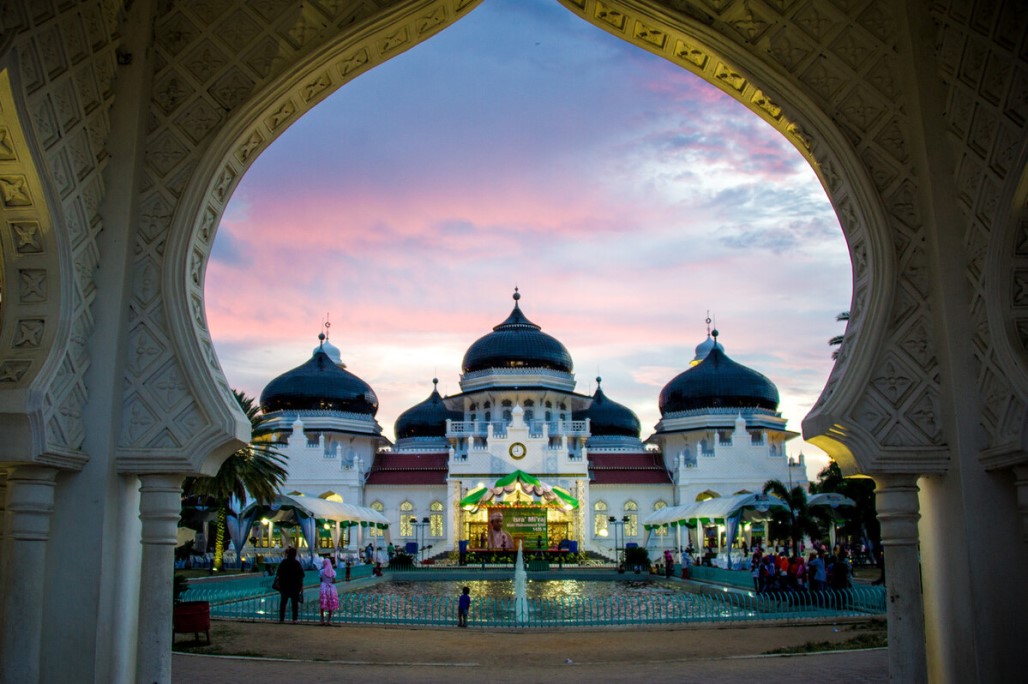
Indonesia and Malaysia are the top destinations for Muslim travelers in the Mastercard-CrescentRating Global Muslim Travel Index (GMTI) 2023. The annual report analyzes data across nearly 140 countries to offer insights into which destinations best meet the needs of the growing halal travel segment.
According to the GMTI, Muslim international arrivals hit 110 million in 2022 and are forecast to reach 140 million this year. By 2028, Muslim arrivals are expected to reach 230 million, with projected expenditure of $225 billion. Currently, Asia leads the way for arrivals, with more than 31% of all travelers to this region identifying as Muslim.
Indonesia and Malaysia, which scored equally in the index this year, have long been popular destinations for Muslim tourists. Indonesia topped the ranking in the 2019 report, while Malaysia has been at the forefront of the GMTI since 2015. Singapore ranked 12th, making it only one of two countries (along with the United Kingdom) outside of the Organization of Islamic Cooperation to rank in the top 20.
Travel trends
The index assesses destinations across four key criteria: Access, Communications, Environment, and Services (ACES). Southeast Asian destinations ranked among the top 10 on all four of these criteria, while in the aggregate, Indonesia and Malaysia both scored 73 (out of a possible 100), Singapore scored 64, Thailand achieved a score of 52, and the Philippines, 46.
The report noted that changes in global travel behaviors can also be found among Muslim travelers. They are increasingly incorporating sustainability into their travel; opting for destinations and activities to improve their health and wellness; finding opportunities for immersive experiences and authenticity; and incorporating personal development into their travel plans.
“While by no means a monolith, Muslim travelers are often looking for their travel plans to align with certain faith-oriented criteria, such as availability of halal foods, rooms for prayer, and encouraging communications and messaging from destinations,” said Fazal Bahardeen, founder and CEO, CrescentRating. “Over the years we’ve conducted this research, we’ve consistently seen markets that prioritize these requirements perform well among Muslim travelers, and so it is our hope that the 2023 edition offers insights that will allow destinations to garner more understanding, more inclusivity, and ultimately, a closer relationship with this demographic.”
Safdar Khan, division president, Southeast Asia, Mastercard, said: “With the travel industry already exceeding pre-pandemic levels of growth, the GMTI shows how faith-based travelers have evolved in their needs, and how these needs can be better met to create more resilient tourism offerings.”
The GMTI used to be called the Crescentrating Annual Ranking and assessed only the top 10 Muslim-friendly destinations. Now, the report encompasses 138 destinations globally, and offers insights into everything from travel document requirements to faith-aligned sustainability practices.
New tools
The latest edition of GMTI offers four new tools that offer insights and recommendations regarding this demographic:
- Muslim Travel Intent Tracker: This metric considers various time frames, from immediate travel plans to those planned over a year in advance, to capture the dynamic and evolving preferences of the Muslim traveler market.
- Muslim Traveler Responsible Tourism Framework: This offers a holistic approach to help guide Muslim travelers in making mindful choices that promote sociocultural, socio-economic, and environmental sustainability while upholding the values of the faith.
- GMTI Performance Matrix (GPM): By incorporating the GMTI scores and the percentage of Muslim visitors to overall visitors, the GPM provides a comprehensive overview of destinations’ ability to cater to Muslim travelers and their success in attracting this growing market segment.
- Muslim Women-Friendly Destinations: This identifies destinations that provide a welcoming and comfortable experience for Muslim women travelers, taking into account such factors as safety, faith restrictions and sustainability within the Environment criteria of the ACES model.
This article was first published by BIMP-EAGA on 14 June 2023.

